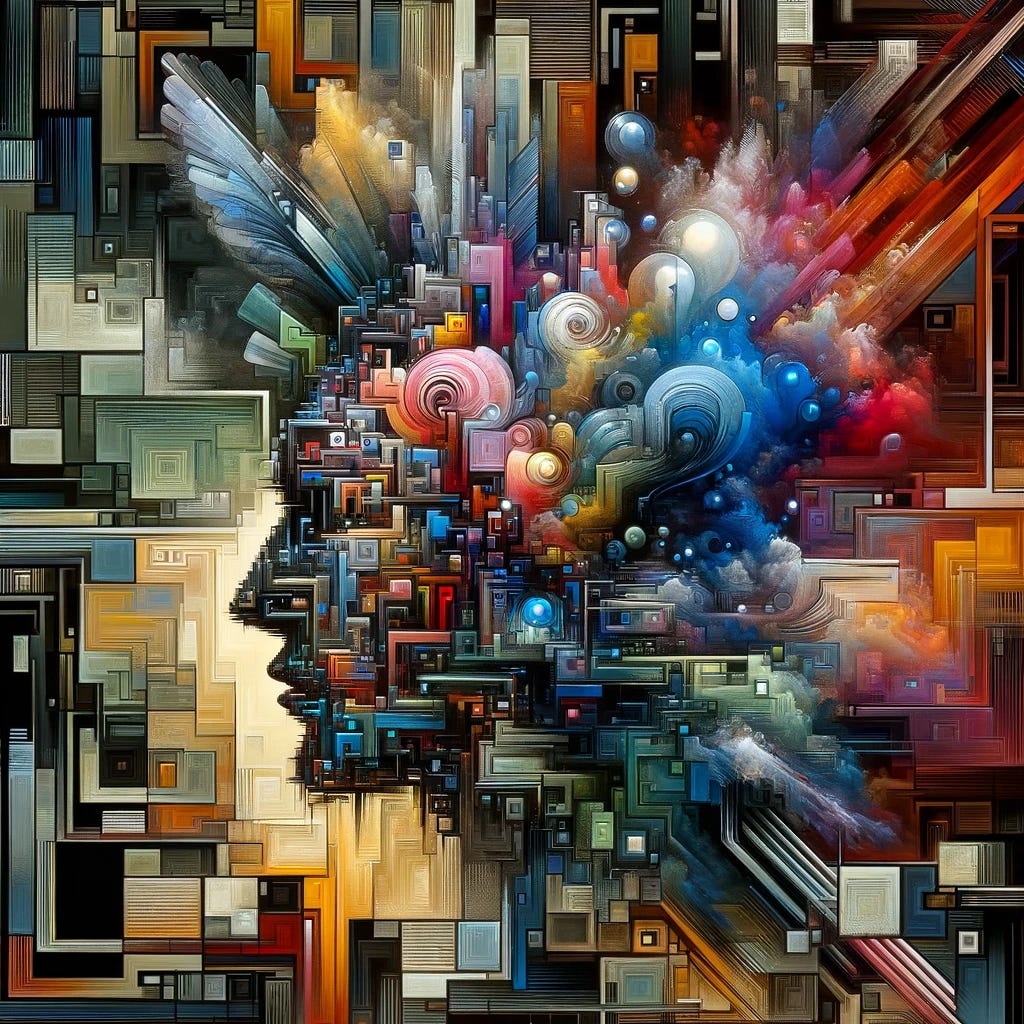After Information (2/30)
Thirty essays in thirty days, number two
Can you imagine explaining the experience of the internet to someone from, say, the early 20th century?
“In the span of the thirty minutes I just spent sitting on my couch, someone in San Francisco shared the perfect morning routine, then someone in Singapore told me I must pursue non-dual awareness, then someone in Florida talked about why immigration is bad, then someone in Costa Rica said I should only drink raw milk, then someone in New York taught me how to be more productive, then someone in Idaho shared footage of a young woman playing tennis on top of a plane. I was about to read some strategies for making friends with diabetic dog owners when I realized I needed to brush my teeth.”
On the off chance that our historical figure doesn’t go straight into cardiac arrest, they might, upon recovering the ability to speak, ask what you were supposed to do with all of this information.
An excellent question.
—
To say that we are suffocating in information is not strictly metaphorical. Not for me, at least. When I get deep into one of those digital rabbit holes, I find that my breathing gets shallow and fast, like I’m having a subconscious panic attack. The onslaught of data is too much for my monkey brain.
It sure is exhilarating, though. Existence feels rife with possibility, with urgency. So many interesting ideas! So many ways to improve my life! So many people who need to be corrected! Before lunch I’ll tackle my childhood trauma; then, I’ll relax and study Kierkegaard over a seed oil-free meal before spending the afternoon writing an essay showing Marc Andreessen that his “Techno-Optimist Manifesto” is meaningless1.
But these plans tend to be forgotten about when I stumble upon even more interesting ideas, more ways to improve, more ideological opponents. Before I know it it’s 9:00 PM, and I’ve made a crater in my couch.
—
One viewpoint I’ve come across about this digital drowning is that it creates a great opportunity. With so many people stuck in a theoretical existence, the thinking goes, there’s an arbitrage on action. You can out-achieve most of the population by just, like, leaving your house.
I find this perspective incredibly depressing. It’s like watching the rest of the population be erased by plague and then proceeding to celebrate being the world’s best pickleball player. Congrats, man.
It feels absurd to write this unironically, and yet: I want to live in a world where I leave my house and there are other people waiting for me, where if I for some reason choose to start playing pickleball, I’ll have someone with whom to play.
I sometimes wonder if I’m being hyperbolic. Then I read about how kids are rarely seeing their friends, not getting their driver’s license, not having sex. The writing on the electronic wall is bleak.
—
And still, I tend to skew towards optimism—to believe that, over a long enough time horizon, humans are a self-correcting species. A friend told me he thinks smartphones will go the way of cigarettes. As we watch the negative effects bear out and increasingly get sick of the secondhand effects of spending time with people glued to their screens, he believes, the sentiment and behavior will change. I hope he’s right. Nicotine is powerful, but can it be compared to the infinite-headed dragon of dopamine-delivering information? Are our David-esque monkey brains any match for the Goliath of digital overload?
I think so. Because at some point, we all exit the vortex, however briefly, to see that we’ve made a crater in the couch. And on some level—perhaps below that of consciousness—we realize that, as much as all that seductive and distracting information might have made us feel productive, or superior, or safe, or pleasantly numb, the time we spend in the vortex is time spent not living, time that disintegrates into nothingness like a cloud of cigarette smoke, time lost to eternity, bringing us closer to the day where we no longer get to experience time, no longer get to experience anything at all.
These realizations, I choose to believe, each lead us a step closer to waking up.
I did actually start doing this.




"You can out-achieve most of the population by just, like, leaving your house." That's so tragically sad/funny at the same time I don't know what to do with it. Except leave the house. But I do have to say that the opportunity to read well-articulated, thoughtful ideas from others, and the engage in conversation about them each day is something I celebrate about this uber-weird domain of digital progress.
I was sitting next to a companion the other day and he whipped out a flip phone. I have never been more jealous of his brain which must be so much less inundated than mine. Maybe I am among a minority but I hope that smart phones, like cigarettes fade away until their presence is pungent and unwelcome in buildings.
Love this, Alex!